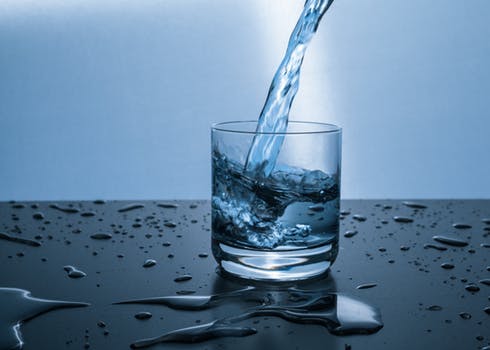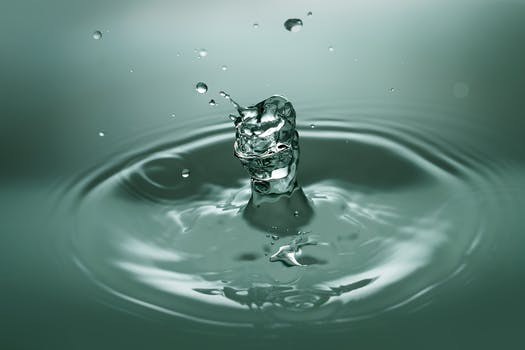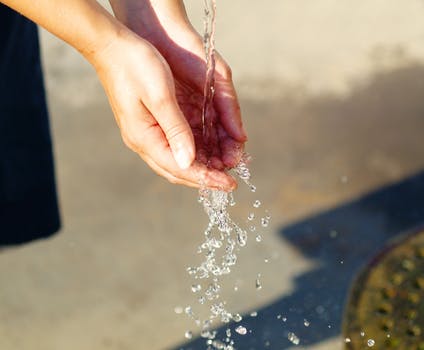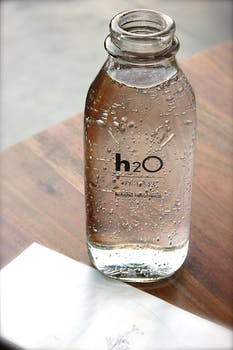 I recently found out about zero water from a friend of mine. I was wondering which is better between distilled water or zero water, so I did some research.
I recently found out about zero water from a friend of mine. I was wondering which is better between distilled water or zero water, so I did some research.
In a nutshell:
Zero water is a five-stage filter that uses ion exchange to remove almost 100% of all substances dissolved in water through a process of ion exchange. Unlike distillation, zero water removes even the good minerals e.g calcium, sodium, and potassium that your body needs. Unlike distilled water which testes flats, zero water tastes crisp.
Distilled water vs Zero water
As its name suggests, Zero-water eliminates virtually all substances from the water. You’re merely left with H2O. For, example, Zerowater water filter pitchers are known to produce the purified bottled water for drinking.
The five stages filtration of Zero water
- Coarse filter screen
- Foam disruptor
- Activated carbon
- Ion exchange
- Ultra Fine screen
The water that comes out from the zero-water filter is pure and has zero % of harmful chemicals like heavy metals and other contaminants. However, Zero-Water also removes all the useful minerals that you get from water.
Plain water without minerals cannot give your body the nourishment it needs for proper functioning. Minerals such as calcium and magnesium are critical in the body. However, people who like Zero-Water argue that we get most of our minerals from food and not water.
Pros
- Pretty simple to use
- Removes all harmful chemical from water virtually
- Does not waste water
- It comes with a handheld meter that measures mineral in the water
- Can be used with any water cooler
- Water taste Good
- 100% free from chlorine
Cons
- It removes all minerals that are essential for proper functioning of the body
- Replacement filters are costly
- Water is slightly acidic
- Sometimes leaks occur
Purification by Distillation
Distillation of water is a process of filtering impurities from water by boiling it. The steam is then transferred to a new container where it condenses. All the substances that were dissolved in the water but have a higher boiling point than water don’t evaporate but are left in the first container. On the other hand, impurities that have a lower boiling point will still find their way into the first container. You will notice that water that has been distilled tastes a little bit flat. Distillation is most useful in removing heavy metals, minerals, bacteria, and viruses.
Pros
- Distillation removes harmful toxins
- The water has most of the essential minerals intact
- Relatively low cost compared to zero water and reverse-osmosis
Cons
- Distilled water tastes flat
- Impurities with a lower boiling point like chlorine are not removed
- Water becomes acidic
- Removes minerals from water although not to a bigger extent like zero water.
- Distillation is not energy efficient
What is the best choice?
If you don’t mind drinking water that has no essential minerals, but it’s entirely free from harmful chemicals like chlorine, and it tastes crisp, then Zero-water is the water filtration for you. Distillation makes you water taste flat, and it’s not energy efficient.

Is zero water acidic?
In addition to measuring dissolved solids to determine the quality of water, acidity is an important indicator of the quality of water. Though Zero-water has zero dissolved solids, its acidity is high.
The acidity of water is measured by its pH level. pH has a range of between 0-14. Thus, the lower the pH, the more acidic the water is said to being. Zero-Water produces a pH level of between 4.5 and five which is bit acidic. EPA (Environmental Protection Agency) recommends a pH level of between 6.5 and 8.5. A pH of 4 is not suitable for people who are trying to watch their acid intake. You can increase the alkaline level by adding a little baking soda
Does zero water remove calcium?
Zero-water uses ion exchange to remove all minerals in the water. When you use zero water what you get is water with no other dissolved minerals. Therefore, what you get as the end product is pure H2O.
The five-stage filtration processes ensure that all the sediments and dissolved minerals such as calcium and magnesium are filtered from the water. In addition, all solid sediments are all removed. The handheld meter that zero water comes with will indicate a reading of zero dissolved substances.
Zero water filter lifespan
You should replace the filters when the TLD reads ‘006’ after this the quality of water deteriorates. Unlike other carbon based filter zero-Water filter are expensive to replace and don’t last long.
Does zero water remove pesticides
 Does zero water remove pesticides? The answer is an absolute Yes! Most pesticides are made using active chemicals such as boric- acid, copper-sulfate and zinc-sulfate.
Does zero water remove pesticides? The answer is an absolute Yes! Most pesticides are made using active chemicals such as boric- acid, copper-sulfate and zinc-sulfate.
Through the process of ion exchange, zero water removes 99% of these chemicals. Thus, the water is entirely safe to drink.
Types of water
- Spring water- water found deep in the under the earth in the underground aquifers. In addition, because the water is located between rocks, it usually pure and is rich in minerals which are dissolved.
- Purified water- water that has been filtered using various methods of water purification. Like, reverse osmosis, distillation and ion exchange.
- Distilled water- Energy turns water into steam by heating it, and the steam escapes into another container where it is then condensed back into the water. Therefore, all the substances that had dissolved in water and did not evaporate remain in the first container.
What is the difference between purified water and distilled water?
Purified water refers to water that has undergone a process to remove impurities. The methods of filtering the water include reverse-osmosis, distillation and ion exchange. On the other hand, distillation is one of the processes of purifying water.
Therefore, while distilled water undergoes one process of purification. However, purified water can undergo different stages of filtration. Both purified water and distilled water are safe for human consumption.
Conclusion
In conclusion, zero water uses a five-stage filtration process that removes almost all the impurities from water. Although Zero-Water removes all harmful chemicals, it in the process removes all essential minerals that are found in the water. Zero water produces water that tastes crisp.
However, one significant disadvantage of using zero water is acidity. To distill water you boil it until it turns to steam, and the steam is trapped and condensed. All the substances that were dissolved in the water remain on the first container.
While distillation removes many harmful substances from the water, chemicals that have a lower boiling point like chlorine will not be removed from the water
ABOUT LEON SMITH
 Leon is a 27-year-old blogger from Mauritius who is currently studying for a Master’s degree in chemical and processing Engineering at the University of Eldoret in Kenya. Read more about him.
Leon is a 27-year-old blogger from Mauritius who is currently studying for a Master’s degree in chemical and processing Engineering at the University of Eldoret in Kenya. Read more about him.
